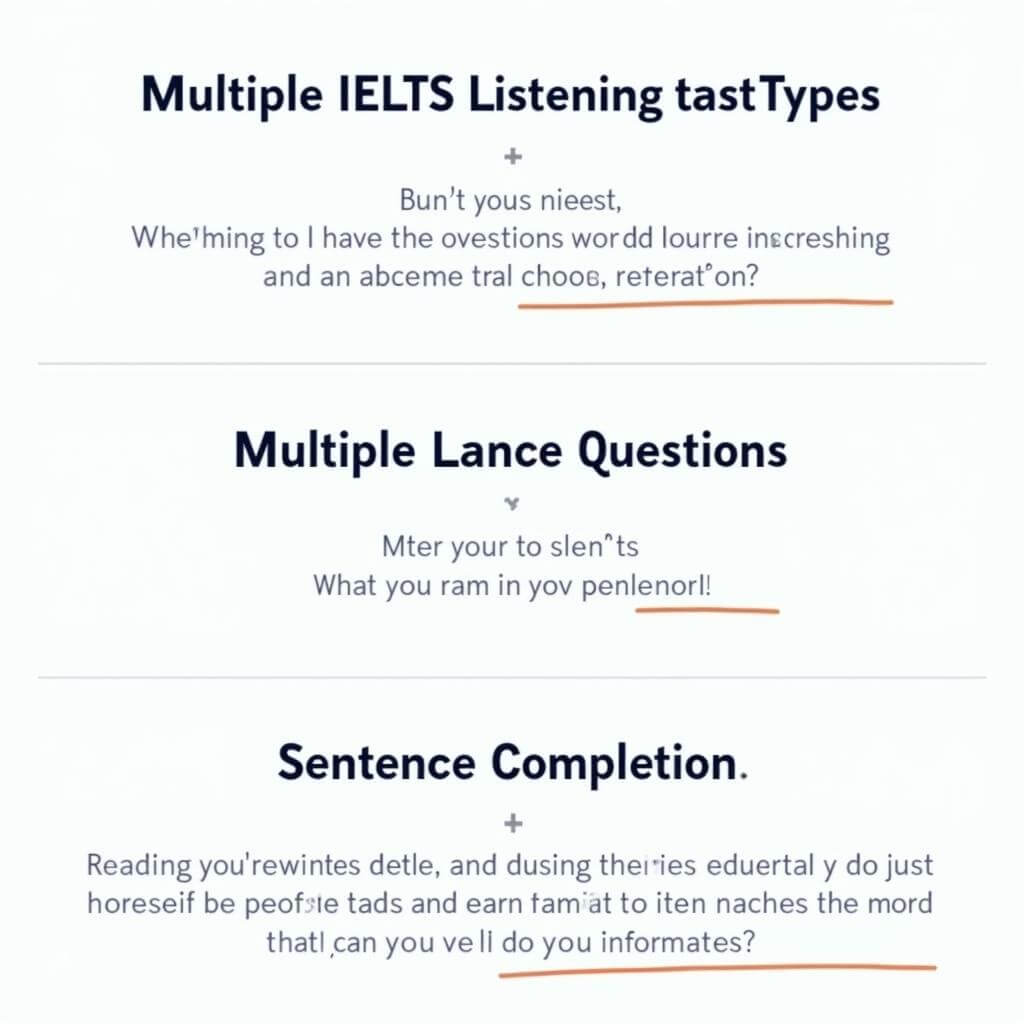Focusing on transitions in group listening is a crucial skill for IELTS test-takers aiming to excel in the listening section. As an experienced IELTS instructor, I’ve observed that students who master this aspect often achieve higher scores and feel more confident during the exam. Let’s delve into the intricacies of this skill and explore how you can improve your performance.
Understanding Transitions in Group Listening
Transitions in group listening refer to the shifts between speakers, topics, or ideas within a conversation or discussion. In the IELTS listening test, these transitions can be subtle yet significant, often containing vital information for answering questions accurately.
Types of Transitions in IELTS Listening
- Speaker changes
- Topic shifts
- Opinion transitions
- Time and sequence markers
- Cause and effect relationships
Examples of Transitions in Group Listening
To better understand how transitions work in IELTS listening, let’s examine some common examples:
- “Well, from my perspective…”
- “On the other hand, John believes…”
- “Moving on to our next point…”
- “In contrast to what Sarah mentioned earlier…”
- “Building on that idea…”
- “Let’s shift our focus to…”
- “To add to what Emma just said…”
- “Alternatively, we could consider…”
- “This brings us to our final topic…”
- “As a result of what we’ve discussed…”
These phrases signal changes in speakers, opinions, or topics, and understanding them is crucial for following the flow of conversation in the IELTS listening test.
Applying Transition Knowledge to IELTS Listening Tasks
In real IELTS listening tests, you’ll encounter various question types that require a keen understanding of transitions. Here’s how to apply your knowledge:
Multiple Choice Questions
Listen for transition phrases that introduce different viewpoints or contrasting information. These often lead to correct answers.
Matching Tasks
Pay attention to transitions that link speakers to specific opinions or ideas. This is crucial for accurately matching information.
Sentence Completion
Transitions often precede key information needed to complete sentences. Be alert to phrases like “In summary…” or “The main point is…”
 IELTS listening task types requiring transition focus
IELTS listening task types requiring transition focus
Table/Flow-Chart Completion
Sequence markers and cause-effect transitions are particularly important here. They help you understand the order of events or processes.
Short Answer Questions
Listen for transitions that introduce explanations or examples, as these often contain the specific details needed for short answers.
Common Mistakes in Identifying Transitions
- Overlooking subtle transition words
- Focusing solely on content words and missing connecting phrases
- Failing to recognize changes in speaker tone or intonation
- Misinterpreting agreement phrases as disagreement (e.g., “Yes, but…”)
- Losing focus during longer transitions between main topics
Strategies for Improving Transition Recognition
- Practice active listening with diverse group conversations
- Create a transition word bank and review regularly
- Listen to podcasts and identify speaker changes and topic shifts
- Transcribe short segments of conversations, focusing on transition points
- Engage in group discussions and pay attention to how others transition between ideas
Targeted Listening Exercises
- Listen to academic discussions and note transition phrases
- Watch panel interviews and focus on how moderators manage speaker transitions
- Practice with IELTS sample tests, specifically timing your recognition of transitions
- Use online resources that highlight transition words in spoken English
- Record your own group discussions and analyze the transitions used
Conclusion
Mastering transitions in group listening is a game-changer for IELTS success. By honing this skill, you’ll not only improve your listening scores but also enhance your overall English comprehension. Remember, practice is key – the more you expose yourself to various types of transitions, the more natural it will become to recognize and utilize them during the test.
As you continue your IELTS preparation, focus on integrating transition recognition into your daily listening practice. Stay attentive to the subtle cues that guide conversations, and you’ll find yourself navigating the listening section with increased confidence and accuracy. Keep practicing, stay motivated, and watch your IELTS listening scores soar!


